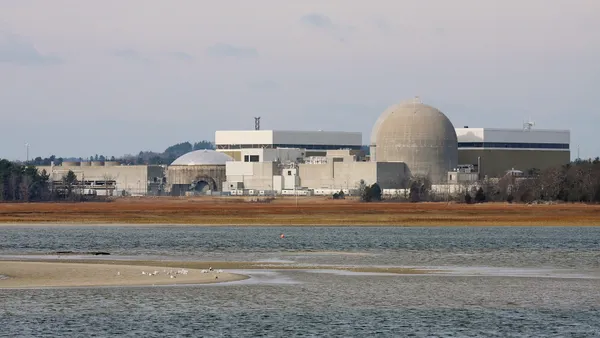Dive Brief:
- Texas regulators delayed a decision on whether to reconsider Hunt Consolidated's plan to purchase Oncor, and now there are legal questions as to whether the deal is even still on the table, the Dallas Morning News reports.
- Opponents of the plan say it is no longer a valid case, now that Energy Future Holdings has filed a second bankruptcy plan with the bankruptcy court.
- But despite all the questions, Hunt continues to draw support for its plan to operate the utility as a Real Estate Investment Trust, with the mayor of Dallas, the third largest city in Texas, pushing for rehearing.
Dive Insight:
Uncertainty now surrounds Hunt Consolidated's bid to purchase Oncor out of bankruptcy, with regulators delaying consideration of a rehearing request amid questions about their legal authority. The Public Utilities Commission of Texas yesterday delayed any action until its May 19 meeting.
The Dallas Morning News breaks down the deal and where it now stands, as well as the potential implications for Texas customers. While EFH may be bankrupt, Oncor remains a successful business.
“Regardless of the timeline or ultimate outcome of these proceedings, Oncor’s strong financial performance and healthy cash flows will allow us to continue delivering value for both our customers and our shareholders," Oncor spokesman Geoff Bailey said at yesterday's meeting.
The first question will be, whether the deal is even still viable. Energy Future's second bankruptcy plan nixes the deal, say opponents. “We believe it is now moot. The transaction is null and void," a lawyer with the Texas Public Utility Counsel told the newspaper.
But support continues to grow for the plan, as well. Last month, a group of 16 Dallas business leaders sent a letter to state utility regulators urging them to approve the deal in a way Hunt's backers find acceptable. And now, the mayor of Dallas has weighed in as well.
“It seems only fair to grant the motion for rehearing and allow the parties to attempt to solve some of the issues of concern in the order,” Mayor Michael Rawlings said in a letter filed with the commission.
Texas issued a decision on Hunt's plan for Oncor in an effort to meet a March deadline for the transaction, and in doing so, placed stipulations on the company's projected tax windfall. Some details were also set aside for later consideration. That led investors to inform regulators that "the transaction as currently configured will not close based on the order as written."
Hunt's investor group told the PUCT that if the deal does not close, "the matter will be returned to the bankruptcy court for an indefinite period of time, with all of the uncertainties inherent in a lengthy and contentious proceeding and no assurance that a new plan will be superior to the one before the commission in this proceeding."
The primary issue in the proceeding is Hunt's plan to operate the utility as a Real Estate Investment Trust, a strategy which has never been used with a utility of its size. A $250 million annual tax windfall would have gone to investors, but regulators have pressed for that to be shared with customers, one of the sticking points in Hunt's ability to accept Texas' conditions.














